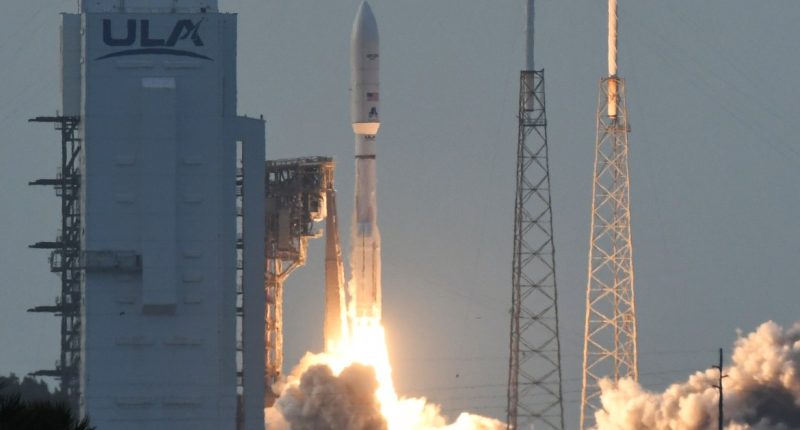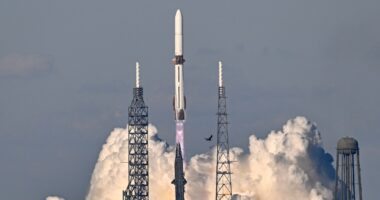Share this @internewscast.com
Amazon’s Kuiper broadband internet network is beginning to form as its initial set of satellites was launched into space on Monday. This is the first of 80 planned launches by Amazon to send all 3,236 Project Kuiper satellites into low-Earth orbit, aiming to compete with Starlink, the satellite internet service led by SpaceX.
An Atlas V rocket from United Launch Alliance (ULA) carried Amazon’s first batch of 27 Kuiper satellites into space from Florida’s Cape Canaveral Space Force Station at 7 p.m. ET on April 28th. The launch was initially scheduled for April 9th but was postponed due to unfavorable weather.
Amazon CEO Andy Jassy expressed his enthusiasm, stating on X, “While this marks the beginning of a lengthy mission to deploy our complete low Earth orbit constellation, it showcases remarkable innovation and effort. I’m extremely proud of the team’s accomplishment.”
The Kuiper satellites were deployed 280 miles (450 kilometers) above Earth, and Amazon has confirmed that the satellites are successfully activated and communicating with ground systems. If all goes to plan, Amazon said it expects to start providing “high-speed, low-latency” satellite internet to customers “later this year.”
“This launch marks the first step towards the future of our partnership and increased launch cadence,” ULA CEO Tory Bruno said in a post-launch statement. “We have been steadily modifying our launch facilities in Cape Canaveral to support the capacity for future Project Kuiper missions in a manner that will ultimately benefit both our commercial and government customers as we endeavor to save lives, explore the universe and connect the world.”
The $10 billion Project Kuiper plan was announced in 2019 and is now under a deadline from the US Federal Communications Commission to have 1,618 satellites deployed by mid-2026 — half of its total constellation, but significantly fewer than the more than 7,200 satellites that Starlink already has in operation. By contrast, SpaceX announced yesterday that it had completed its 50th Starlink mission of 2025, passing a total milestone of 250 dedicated Starlink launches to date. The company is currently aiming to have 12,000 Starlink satellites in orbit, but already has regulatory approval to expand to 34,400 satellites.







